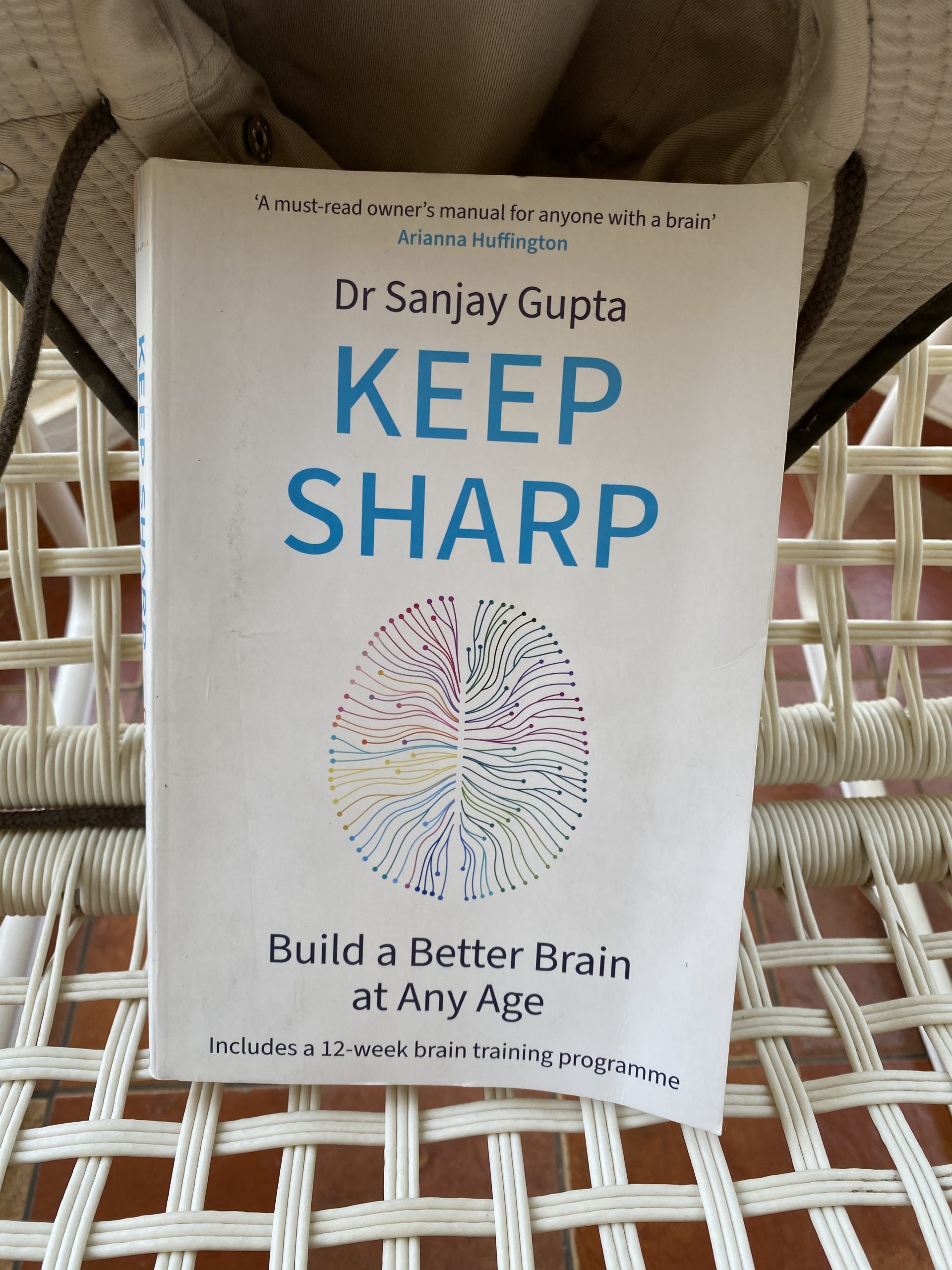We love to take care of our bodies, but how many of us strive to take care of our brains? Developing a resilient and stronger brain will, at the most basic level, help us live our lives in an optimal manner. Of course, then there are other benefits too, such as preventing cognitive illnesses related to old-age. Keep Sharp by Dr. Sanjay Gupta (Hachette) takes us through a fascinating journey into the human brain.
As a neurosurgeon, Dr. Gupta is an authority on the brain. He has seen the in and out of the human brain, well, literally! As he points out in Keep Sharp, there is a lot of research on physical ailments. However, research on the brain has still to keep pace.

“Once you see the brain, you very much want to protect it and take care of it,” he writes, as he reminiscences about the first time he saw a live human brain. his sense of wonder and amazement at the power of the human brain passes on to the reader and infuses the reader’s mind quite early on in the book.
Keep Sharp is upbeat and positive in tone. It reiterates that it is indeed possible to seek control of our health, especially brain health, irrespective of genetics. Scientific knowledge merges with personal stories from Dr. Gupta’s own life, as well as rich anecdotes from a treasure trove of experience. Brainy facts break the text as you read the book, leaving you will fun and useful trivia about the brain.
Prevention is better
One of the interesting strands of thought in this book is the emphasis on preventing cognitive decline. Research indicates that cognitive decline starts years before any symptoms emerge. So, people may not really worry about dementia till they are in their 50s for example. However, the decline could have already started as early as the 30s! What are the habits that could prevent this? This is exactly why young people need to read Keep Sharp!
There is an entire section dedicated to putting the knowledge gleaned from research and experience into a format that a layperson can follow and adapt easily. The book ends with a section that truly tugs the strings of your heart, even as it talks about the brain. It is a detailed understanding of the human stories and aspects behind dementia in general, and Alzheimer’s in particular. The book ends on a very positive note and with the hope that there will be a day when the word ‘dementia’ is indeed forgotten! Till then, it is up to us to “Keep Sharp”!
Takeaways from Keep Sharp
Of course, the relevance of any book depends a lot on the practical application that readers can do. Keep Sharp outlines the five pillars to brain health- Move, Discover, Relax, Nourish and Connect. He elaborates on each of these aspects in adequate detail.
- “Exercise is the only behavioural activity scientifically proven to trigger biological effects that can help the brain” he writes. When a brain surgeon tells you that any form of exercise is indeed a way to make your brain sharper, you’ll take it at face value!
- Having a sense of purpose and being constantly engaged is also crucial for the brain.
- In addition, if you’ve channelled and challenged your brain over the years, you might have developed brain resilience which will surely hold you in good stead!
- The chapter on sleep was also particularly interesting for me. Relaxing and getting adequate sleep may seem too common an advice but once you read this chapter on the varied aspects of sleep, you’ll see the link of lack of sleep to inflammation, which directly impacts brain health. Particularly interesting is the role of sleep in removing brain trash!
- “Don’t multitask- Tackle your day like a surgeon” he says. Yes, you wouldn’t want your surgeon to check his phone while operating on you, would you?
- The role of diet and food in brain health is also crucial. “Stop buying foods that a farmer or gardener (or your great-grandmother) won’t recognise” he states. Hmm…time to look at the peripheries of supermarkets! Or maybe, in your own backyard?
- It is an irony of sorts that social isolation and feelings of loneliness is an epidemic in today’s hyper-connected world. It is important to nurture genuine social connections for your brain health.
After reading Keep Sharp, you’ll be convinced about Dr. Gupta’s advice to “keep the brain first. Everything else will follow”. Detailed in simple, practicable and extremely implementable bites, this is a brain snack you should chew on! The surgeon may have got into many people’s brains in the course of his career, but Keep Sharp will surely get into yours!




